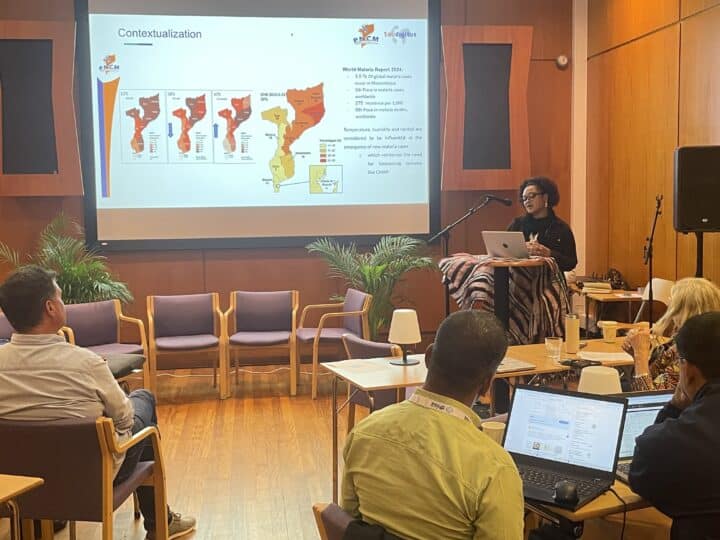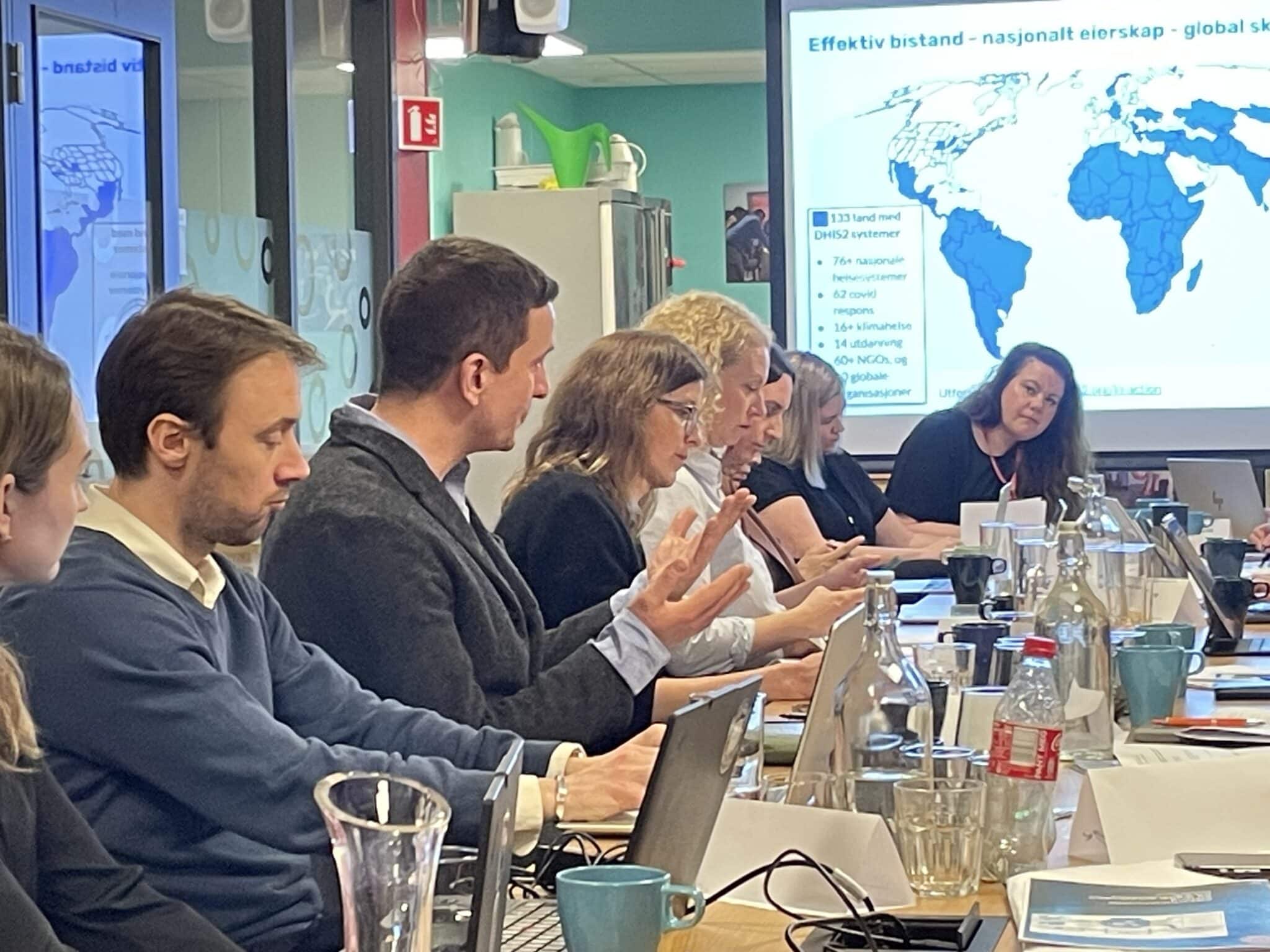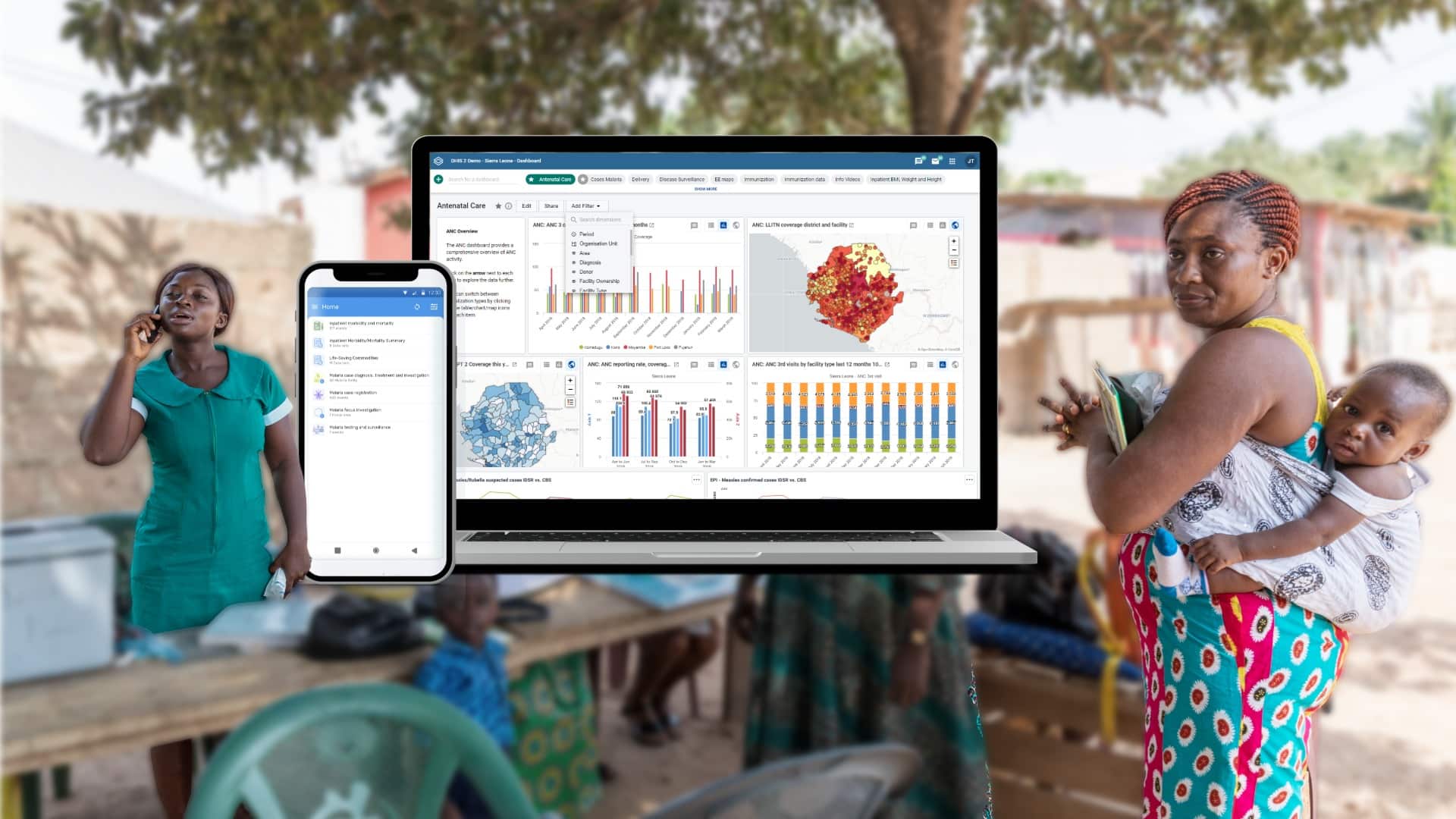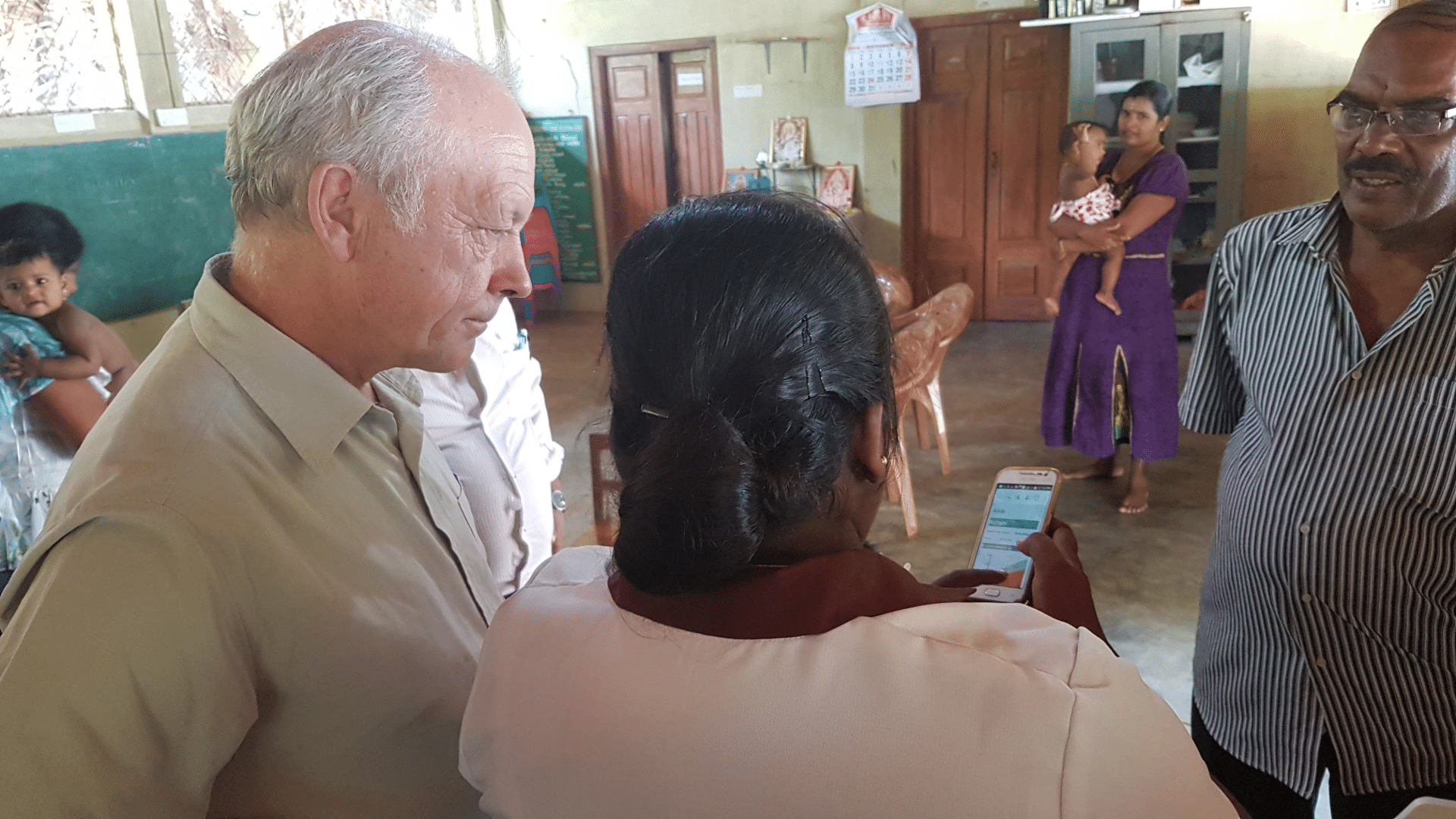The DHIS2 Annual Conference takes place from 15-18 June 2026! Learn more
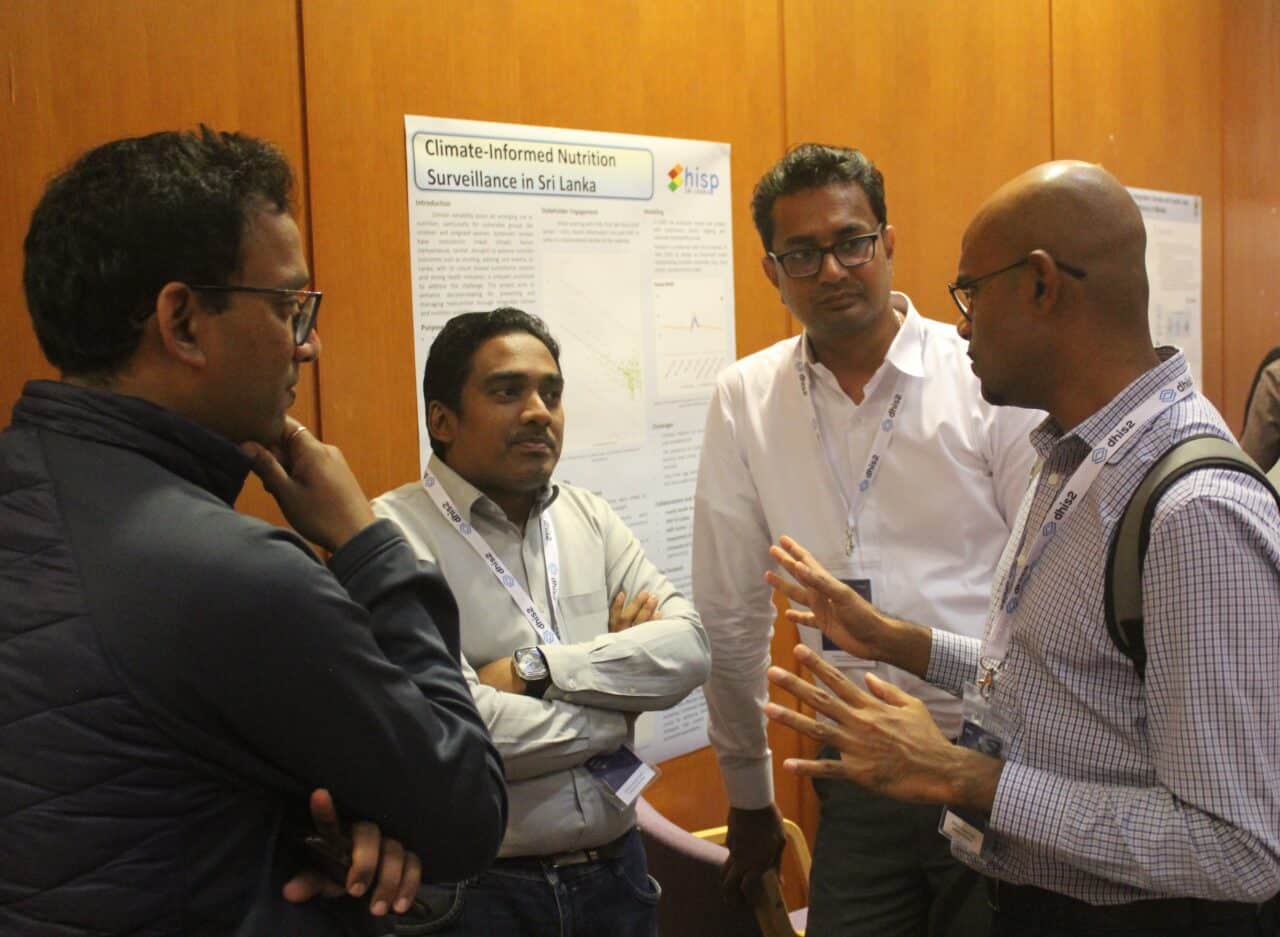
Climate & health experts gather at HISP-led conference in Oslo
HISP groups, national stakeholders, and technical experts from 20 countries shared knowledge and experiences at a capacity-building conference and workshop for the DHIS2 Climate & Health project
In June 2025, the HISP Centre at the University of Oslo (HISP UiO) hosted an invitation-only conference and workshop with the HISP groups, national teams, technical partners, and other stakeholders involved in the DHIS2 Climate & Health project. In total, the event gathered 65 participants from 20 countries.
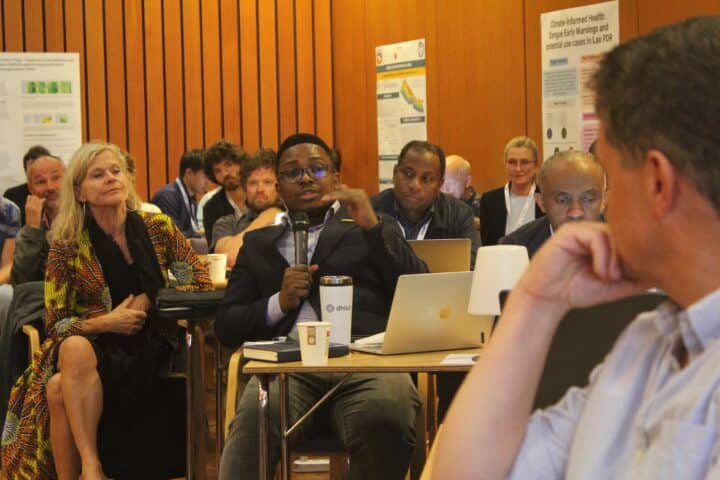
Conference participants included representatives from the 10 countries involved in our Wellcome-funded pilot project; technical experts on climate data and modeling from the International Research Institute for Climate and Society (IRI) at Columbia University, the Barcelona Supercomputing Center, and the CICERO Centre for International Climate Research; climate-health stakeholders from the African Leaders Malaria Alliance (ALMA), the Malaria Consortium, GIZ, and Red Cross Netherlands; and representatives of Norway-based partners, including the Norwegian Meteorological Institute, the National Institute of Public Health, and Norad.
The event began with a two-day conference in which countries shared their experiences and challenges around their own climate and health work with DHIS2. These presentations prompted good discussions on key topics such as the use of local climate data vs. the global datasets available through the DHIS2 Climate App and the need for gridded climate and environmental data for use in DHIS2, as well as the importance of evaluation in the rollout of predictive modeling tools. Each of the 10 Ministry of Health/HISP country teams also presented a poster with more detail on their specific climate and health use cases.
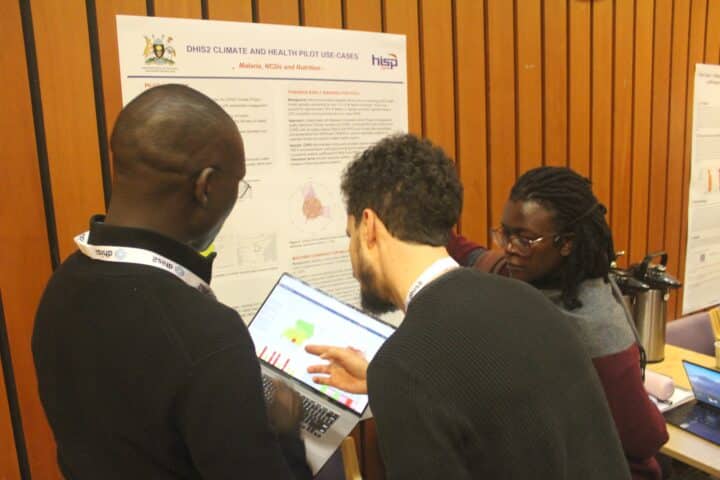
The second part of the event was a three-day workshop that focused primarily on predictive modeling using the Chap Modeling Platform and the DHIS2 Modeling App. These sessions aimed to HISP and country build capacity for modeling in practice, including the meaning of model evaluations and how to adapt models to a local context. Each country team came to the workshop with the Chap platform already installed on a DHIS2 instance with national health and climate data, allowing them to do hands-on work with their own systems.
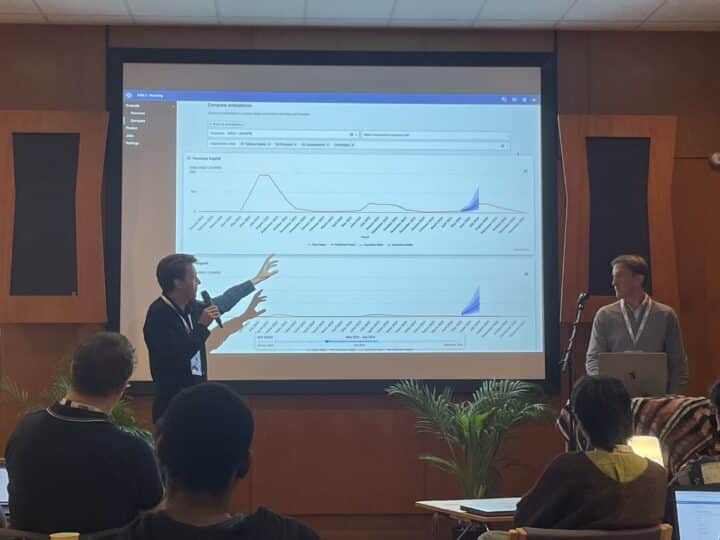
The event was very successful as a platform for knowledge sharing and capacity building, giving each country team the opportunity to both share their own perspective and learn from the others. The learnings from this conference will inform HISP’s ongoing work with DHIS2 for climate and health, including further refinements of our open-source tools and development of shared resources for capacity building and implementation support.
We plan to host a DHIS2 Climate & Health Conference and Academy that is open to the entire DHIS2 community and stakeholders from the climate and health field in early 2026.
